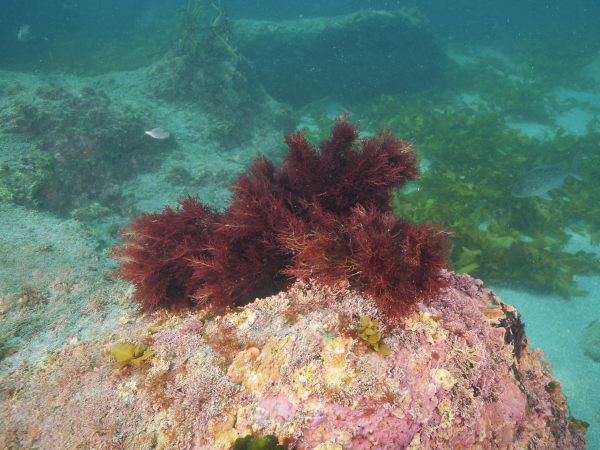
Making an impact through community-led research: the SEAweed-Tech project
As Australia continues to grapple with the climate crisis and bans on single-use plastic, it turns out that seaweed may just be the unlikely superhero to tackle some of these issues; led by a team of UTS researchers, the SEAweed-Tech project is using red seaweed to develop a bioplastic alternative.
This project took off when Program Lead, Distinguished Professor Peter Ralph, attended a conference and connected with Coast 4C, a social enterprise that aims to unlock the potential of seaweed farming to support coastal communities in Southeast Asia.
“This meeting was a lightbulb moment for me as I saw an opportunity to bring together our research expertise in plastics to support a community of seaweed growers in the Philippines that was working with Coast 4C,” says Professor Ralph.
Combined with philanthropic funding granted by the Julius Baer Foundation, the UTS and Coast 4C teams were able to take a community-engaged approach to develop a new green industry by providing a new source of income for locals as well as address pollution.
We didn’t just develop something here in Australia and gave it to the Philippines in the hopes it would work – we started working with the local community right from the very beginning to identify what their needs were and how we could develop something they could use.
Community-led engagement with science and technology puts us in a better position than imposing our work on them because ultimately, we need to build solutions around human behaviour and needs, rather than what we believe should be done.
The result is applicable anywhere in the world and staff will learn from UTS Marine Biologist and Research Fellow for the Climate Change Cluster, Dr Manoj Kumar, who is preparing to travel to the Philippines to work with locals to implement everything needed for the production.
“In response to the local situation, we have developed a very simple, straightforward technology. There’s nothing fancy about it – they can even install it at home and start a small backyard refinery,” Dr Kumar says.
Professor Ralph says a key enabler for the success of this project was an openness towards non-traditional approaches to collaboration and staffing.
“Our strategy pivoted from the old-school approach of abstract work focused on scholarly publishing and commercial development towards tangible scientific outcomes for a community’s betterment.
As we shift towards more social-impact oriented work, universities will have to become places where non-traditional academic CVs are valued and celebrated – those that don’t necessarily have a long list of scholarly publications, but perhaps patents, social impact statements, a wealth of industry knowledge, or strong community networks.
What made our work impactful was the fact that we could bounce between academia, industry and community, which means we could develop something bespoke and useful for locals. – Prof Ralph.
This echoes the sentiments of Dr Kumar who has been researching in academia for well over a decade.
“Working on the SEAweed Tech project is the first time I feel that I’m doing work which has a direct and tangible benefit for society. We’ve not only helped people generate a new income source but also enabled them to afford an education for their children, which will benefit the entire community for decades to come,” Dr Kumar concludes.
